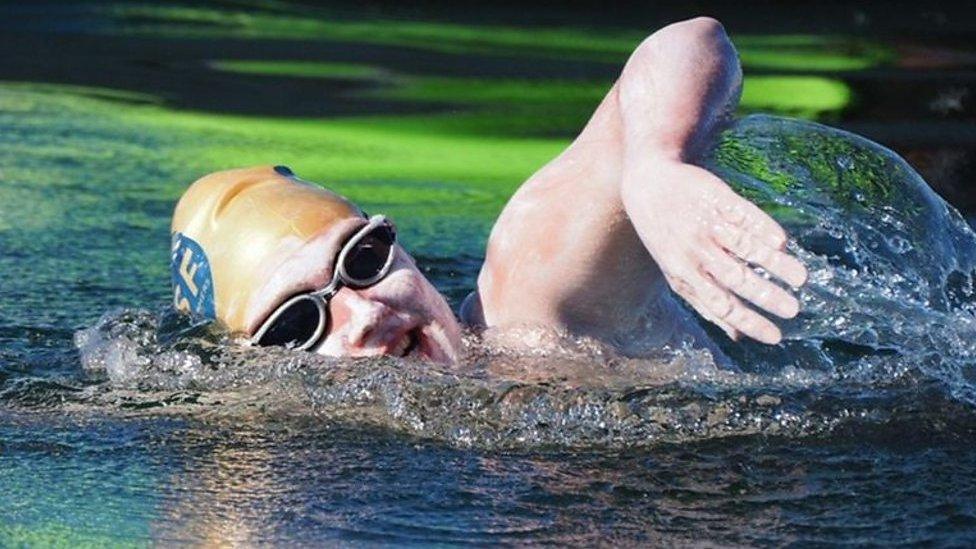Swimming: Concern over number of pool closures across UK
- Published
- comments
Swimming; Why are pools closing?
Summer is a time when lots of people are inspired to have a go at swimming to either learn a new skill, or cool off from the day's heat.
However, there have been concerns raised about the number of swimming pools closing around the UK.
Swimmers across the UK have lost access to 65 public pools in the last three years.
The BBC found that between 2019 and 2022 one in six local authorities had seen at least one pool close, on either a permanent or temporary basis.
The West Midlands and Scotland have seen the most closures, with the West Midlands being hit the hardest.
The region saw the number of pools fall from 105 to 97, while in Scotland it decreased from 219 to 211.
The pool closures have led to fears that opportunities for people to learn how to swim are becoming increasingly limited.
This is particularly true for families with tighter budgets who might find it more difficult to visit more expensive private pool.
There are also concerns people with disabilities may also end up missing out on the chance to swim.
What kind of problems are local pools facing?
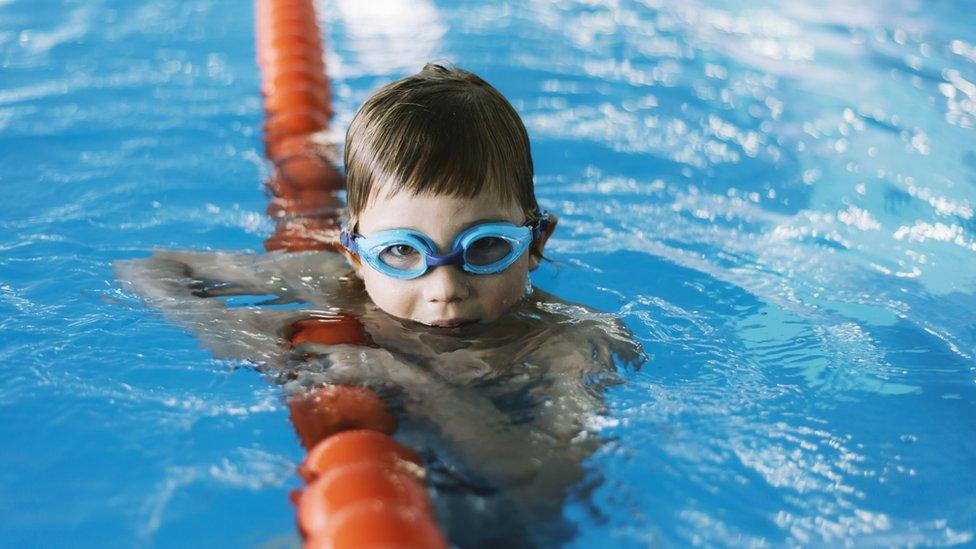
Is your local swimming pool accessible?
Swimming pools in some areas have seen their doors shut for good, while others are currently closed for refurbishment, but with no fixed reopening date.
There are also some pools which are now only available for private hire, or which can only be used by swimming clubs.
When it comes to the pools which have remained open, many are also experiencing lifeguard shortages and problems with getting chlorine for the water.
This led to reduced timetables, which means people can only swim during specific and often limited periods of time.
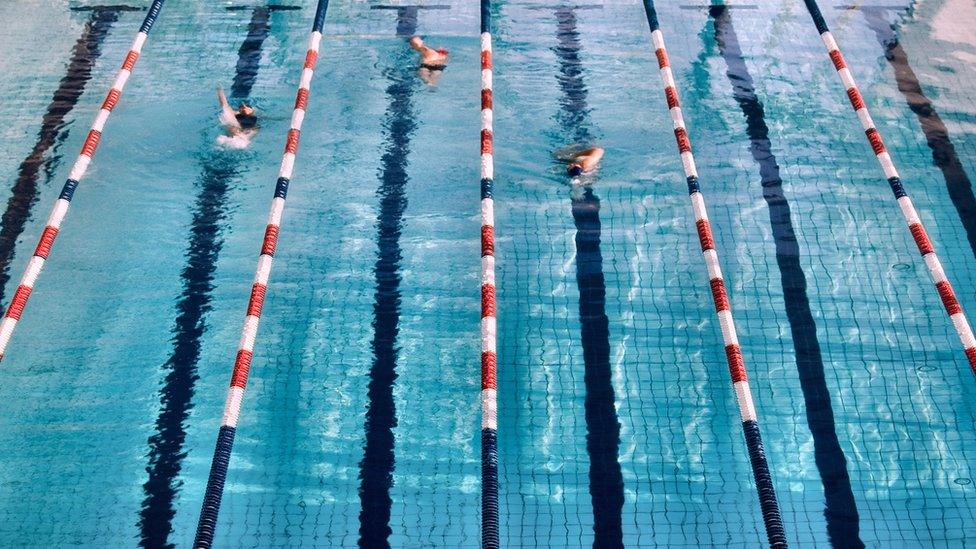
More than 60 public pools across the UK have closed over the last three years
Recent increases in energy costs is another factor which has affected the running of swimming pools.
Professional athletes have said they are concerned. Olympic and Commonwealth champion Adam Peaty has been vocal in asking for more government support to keep pools open - especially for children.
He told the BBC: "The government really needs to work harder to get [to] these kids and give them accessibility".
Meanwhile Paralympic swimming star Alice Tai said the local pool in Ealing where she used to train has also closed, which "has had an impact on the whole community".
You tell us why swimming is important
Ukactive is a charity which aims to improve people's health by getting more people active. It's said two million children left primary school unable to swim in the past year.
"The legacy of that goes on and on," said former British Olympian Greg Whyte who is a board member at the organisation.
"Those non-swimming children become non-swimming adults, they then have their own children and non-swimming parents have non-swimming children."
What has the government said about the closures?
A spokesperson for the Department of Culture, Sport and Media said: "The government has provided an unprecedented £1bn of public money to ensure the survival of the grassroots, professional sport and leisure sectors.
"This includes the £100m National Leisure Centre Recovery Fund which secured the survival and reopening of more than 1,100 swimming pools all over the country.
It added: "On top of this Sport England, the government's funding agency, has provided over £8.5m to swimming and diving projects, and over £16m to Swim England since 2017."
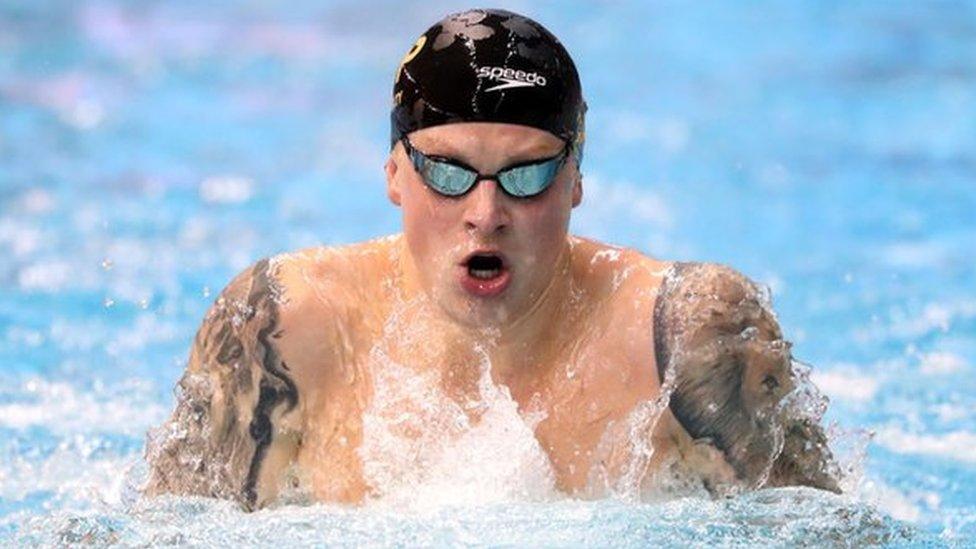
Adam Peaty has called on the government to work harder to ensure children and young people have access to pools
Gerald Vernon-Jackson, chair of the Local Government Association's Culture, Tourism and Sport Board, said that he recognised that public leisure facilities are usually relied on by those on lower incomes, and that "councils are working incredibly hard to prevent centres from closing".
He added that he understood that many people are facing rising individual costs, and said he had no desire to increase prices if it can be avoided - but that rising energy costs would potentially impact on future decisions about whether new facilities open.
Is your local swimming pool still open? Let us know in the comments.
- Published5 May 2021
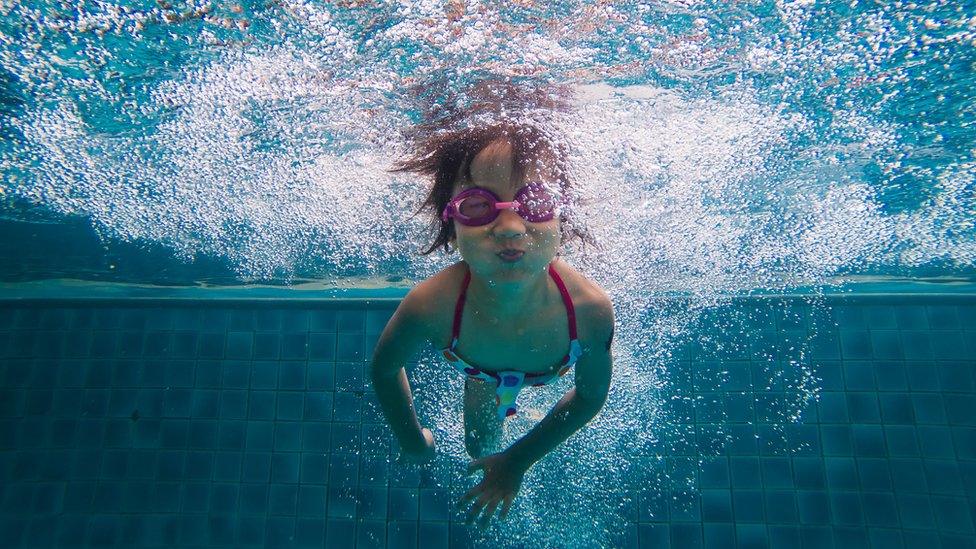
- Published6 July 2021
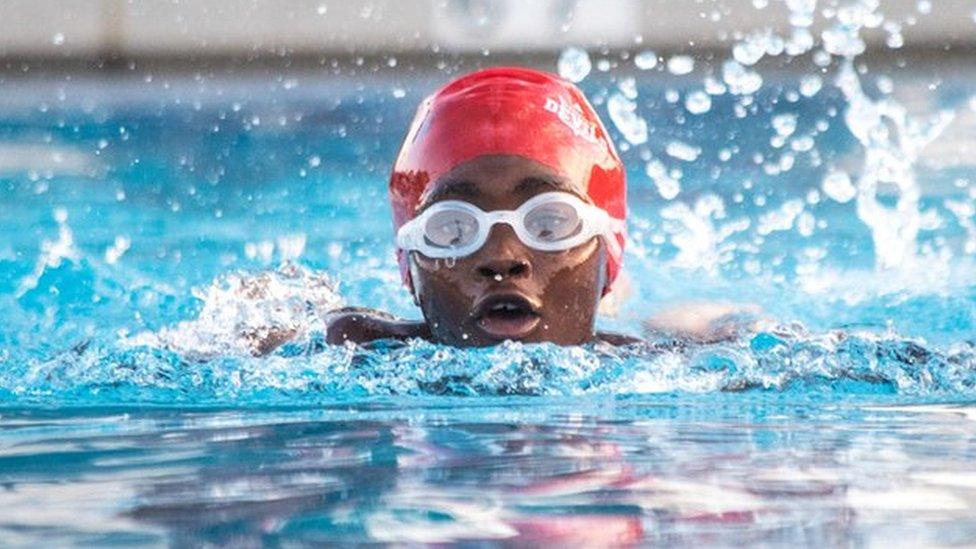
- Published19 September 2019
